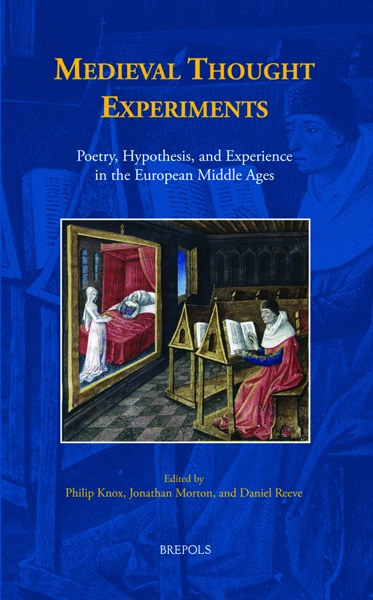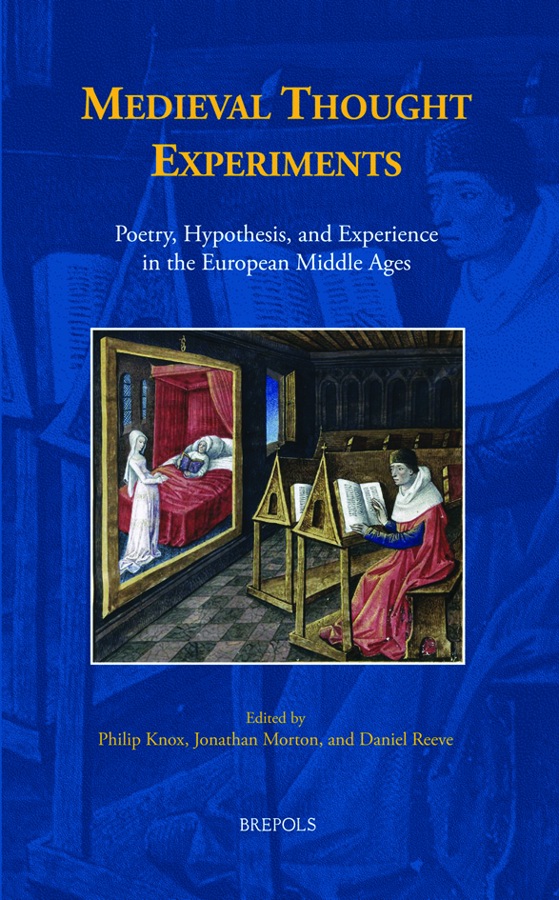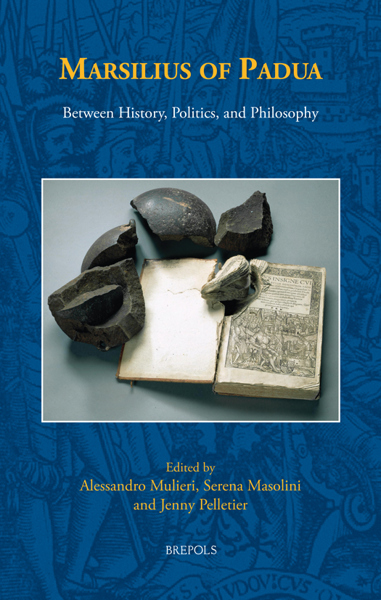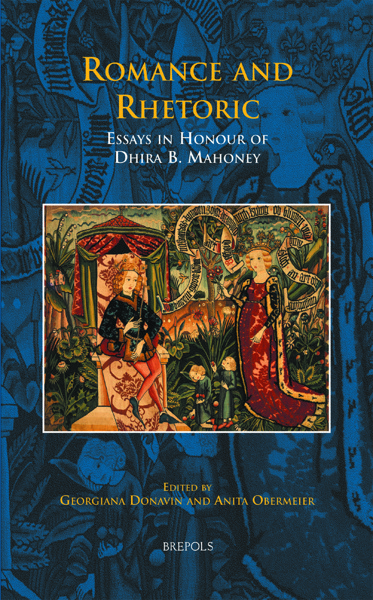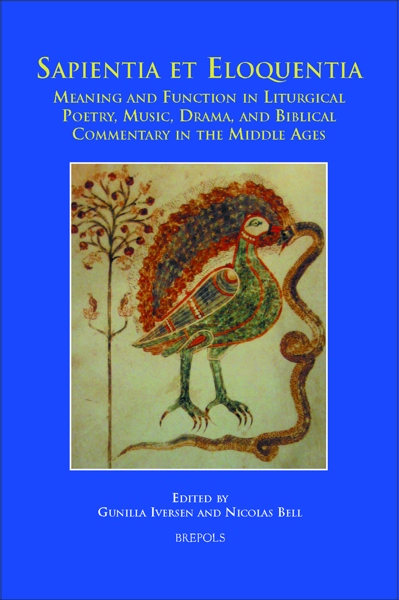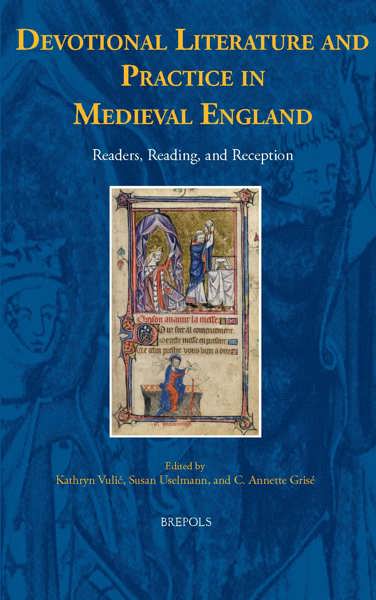
Medieval Thought Experiments
Poetry, Hypothesis, and Experience in the European Middle Ages
Philip Knox, Jonathan Morton, Daniel Reeve (eds)
- Pages: viii + 339 p.
- Size:156 x 234 mm
- Illustrations:3 b/w
- Language(s):English
- Publication Year:2018
- € 100,00 EXCL. VAT RETAIL PRICE
- ISBN: 978-2-503-57621-3
- Hardback
- Available
- € 100,00 EXCL. VAT RETAIL PRICE
- ISBN: 978-2-503-57622-0
- E-book
- Available
An interdisciplinary collection examining the interface of literature and philosophy in the High Middle Ages.
“Overall these densely argued essays present a stimulating review of the variety of thought experiments to be found in the Middle Ages.” (Leslie C. Brook, in Modern Language Review, 114/3, 2019, p. 527)
“This collection of essays, which began as a conference held at New College, Oxford, in April 2015, is an ambitious contribution to the body of work that explores the way medieval thinkers understood their own literary practices.” (R. D. Perry, in The Medieval Review, 19.12.17)
“(…) the editors should be congratulated on assembling a collection of excellent essays, which illustrate remarkably well how imaginative explorations could be used to test or play with ideas.” (Alastair Minnis, in Speculum, 95/1, 2020, p. 272)
« Le volume est d’intérêt fondamentalement historique (…) » (G. Matteo Roccati, dans Studi Francesi, 188, 2020, p. 333)
“The sustained and careful examination of the highly integrated and experimental nature of medieval thought and writing makes the volume valuable for those who are interested in this aspect of the study of the Middle Ages.” (Traci Phillipson, in Revista Española de Filosofía Medieval, 26/2 (2019), p. 172)
Throughout the Middle Ages, fictional frameworks could be used as imaginative spaces in which to test or play with ideas without asserting their truth. The aim of this volume is to consider how intellectual problems were approached — if not necessarily resolved — through the kinds of hypothetical enquiry found in poetry and in other texts that employ fictional or imaginative strategies. Scholars working across the spectrum of medieval languages and academic disciplines consider why a writer might choose a fictional or hypothetical frame to discuss theoretical questions, how a work’s truth content is affected and shaped by its fictive nature, or what kinds of affective or intellectual work its reading demands. By reading literary, philosophical, and spiritual texts from England, France, and Italy alongside each other, this collection offers a new interdisciplinary approach to the history of medieval thought.
Introduction: Textual Experiments, Thinking with Fiction — JONATHAN MORTON
Thought Experiments with Unbelief in the Long Middle Ages — JOHN MARENBON
Can Thought Experiments Backfire? Avicenna’s Flying Man, Self-Knowledge, and the Experience of Allegory in Deguileville’s Pèlerinage de Vie Humaine — MARCO NIEVERGELT
Piers Plowman and God’s Thought Experiment — MISHTOONI BOSE
The Conception of the World in Le Dialogue de Placides e Timéo — ALICE LAMY
‘As I kan now remembre’: Memory and Making in The House of Fame — JANE GRIFFITHS
Affective Meditation in Hand Mnemonics and Devotional Texts, from Amor Dei to Fear of Judgement — JULIA BOURKE
Bonaventure’s Thought Experiment: The Use of Synderesis in the Itinerarium mentis in Deum, the Ineffability Topos and Francis’s Stigmata — GUSTAV ZAMORE
The Art of Rambling: Errant Thoughts and Entangled Passions in Petrarch’s ‘The Ascent of Mont Ventoux’ (Familiares iv, 1) and RVF 129 — FRANCESCA SOUTHERDEN
Desire for the Good: Jean de Meun, Boethius, and the ‘homme devisé en deuz’ — PHILIP KNOX
Interpretation all the Way Down: Fabliaux and Medieval Exegesis — GABRIELLE LYONS
Queer Arts of Failure in Alan of Lille and Hue of Rotelande — DANIEL REEVE
Ethice subponitur? The Imaginative Syllogism and the Idea of the Poetic — VINCENT GILLESPIE
Index
